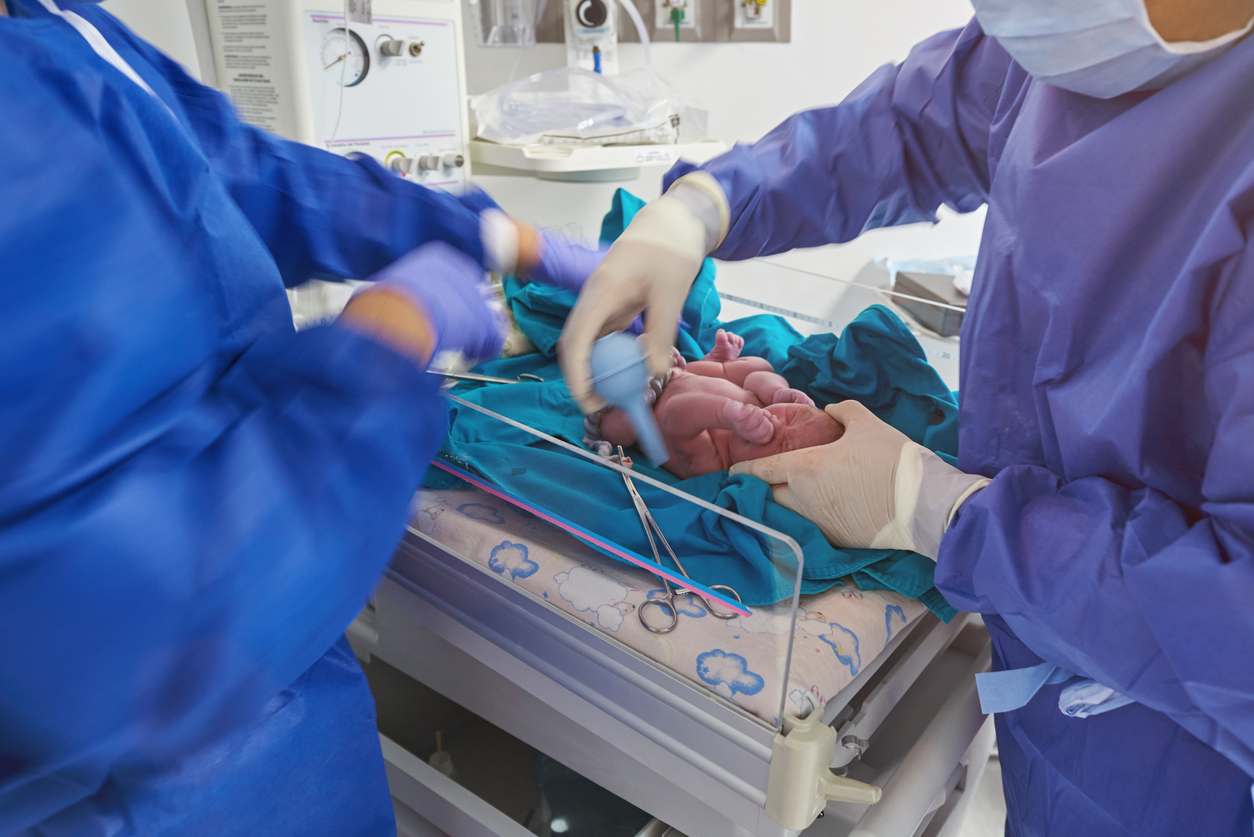Causes and Symptoms of Caput Succedaneum
October 23, 2024 | Birth Injury

Few things are more frightening to parents than when their child sustains an injury. No matter how old your child is, a significant injury can be a heart-stopping event, but perhaps the worst-case scenario is an injury that occurs during childbirth. As many as 33% of newborns may suffer from a type of edema (a form of swelling) known as caput succedaneum.
What is this condition, what causes it, and what symptoms can you expect? Here’s everything you need to know.
What Is Caput Succedaneum?
Caput succedaneum is a condition in newborns characterized by scalp swelling, typically associated with pressure on the head during delivery. It is most common in long or difficult deliveries or those in which the baby is larger than average. However, different methods of assisted delivery can also contribute to the condition.
The resulting swelling is typically considered benign, with symptoms most often receding within a few hours and causing no further harm. However, it can lead to secondary symptoms like tissue damage or jaundice that may become more serious if not identified and treated.
The Causes of Caput Succedaneum
In addition to prolonged labor and high birth weight, several factors could contribute to caput succedaneum, such as the following:
Operative Vaginal Deliveries
During long and difficult deliveries, a variety of complications may develop, not the least of which is that the mother may grow tired and have difficulty pushing when the time comes.
In some cases, medical professionals might turn to assisted delivery methods during vaginal birth, such as the use of forceps or a vacuum extractor. However, these tools could contribute to the onset of caput succedaneum. And in some instances, they may inflict more serious injuries, potentially constituting medical malpractice.
Primigravida Pregnancies
First-time pregnancy can be a contributing factor in caput succedaneum because the mother’s labor and delivery may be longer and more difficult than subsequent births. That can lead to greater or more prolonged pressure on the baby’s scalp, followed by swelling after delivery.
Braxton-Hicks Contractions
Irregular contractions that occur before the onset of labor, known as Braxton-Hicks contractions, can put pressure on the amniotic sac and the baby within. This could result in caput succedaneum even if there are no other contributing factors.
Premature Ruptures of Membranes
When membranes rupture early in labor, it can lead to low amniotic fluid that would otherwise cushion the baby’s head as it drops toward the birth canal. That can be particularly problematic in cases of prolonged labor or in those where the baby drops early.
Notable Symptoms of Caput Succedaneum
The main symptom of caput succedaneum is swelling of the scalp, typically near the back of a newborn’s head. It may also extend down either or both sides of the head and could be accompanied by bruising. In some cases, temporary alopecia, or hair loss at the site of swelling, could occur. Rarely, tissue damage may result in permanent hair loss or scarring.
More potentially concerning, however, is the onset of jaundice. Swelling could increase levels of bilirubin in the blood, leading to yellowing of the skin or eyes. It is a condition that can clear up on its own, but if it doesn’t, more serious complications may occur. Newborn jaundice requires careful monitoring and care to prevent further harm like brain damage or even wrongful death.
Advocate For Your Newborn
Becoming a parent can be overwhelming, especially when complications arise. Even when you do all you can to advocate for needed care, you may find yourself in a situation where medical neglect or mistakes occur to the detriment of your child.
Should that happen, a qualified attorney can become your legal advocate, fighting for compensation to help your family move forward.
Contact the Personal Injury Lawyers In Pennsylvania at Marzzacco Niven & Associates For Legal Help With Your Case Today
If you’ve been injured in a personal injury, please contact Marzzacco Niven & Associates at the nearest location to schedule a free consultation today:
Harrisburg Law Office
945 East Park Drive, Suite 103 Harrisburg, PA 17111
(717) 231-1640
York Law Office
2550 Kingston Road, Suite 210A York, PA 17401
(717) 995-8998
Wyomissing Law Office
833 N. Park Road, Suite 103, Room A Wyomissing, PA 19610
(717) 388-2325
Chambersburg Law Office
79 St. Paul Drive, Suite 1 Chambersburg, PA 17201
(717) 388-2378
Carlisle Law Office
354 Alexander Springs Road Carlisle, PA 17015
(717) 995-8732
Carbondale Law Office
30 Lincoln Avenue, Suite 101 Carbondale, PA 18407
(717) 995-8810
Lancaster Law Office
2173 Embassy Drive, Ste 123, Lancaster Pa 17603
(717) 616-2954
Lebanon Law Office
937 Willow Street, Suite D Lebanon, PA 17042-1140
(717) 995-8963
